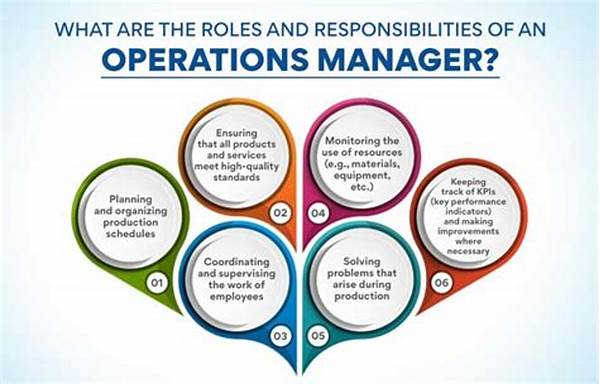In the current global environment, the complexity and uncertainty that shape military and humanitarian operations necessitate a collaborative approach. Joint operations, characterized by the integration of forces and resources from multiple domains, require adept leadership to navigate the multifaceted challenges presented. Leadership roles in joint operations are pivotal in ensuring that diverse groups can operate cohesively towards a common objective. The inherent differences in organizational cultures, objectives, and methods must be harmonized under a unified command structure, wherein effective leaders play a crucial role.
Defining Leadership Roles in Joint Operations
Leadership roles in joint operations encompass a wide array of responsibilities, with a focus on achieving synergy between different participating entities. A critical element of this role involves fostering an environment of trust and mutual respect among coalition members. Leaders in this context must possess not only strategic vision but also cultural sensitivity and adaptability to different organizational norms. By understanding and leveraging each entity’s strengths, leaders can drive operations towards successful outcomes. Additionally, the ability to communicate clearly and efficiently across various command structures and to translate strategic goals into actionable tasks is indispensable.
The dynamic nature of joint operations often necessitates rapid decision-making under pressure. Therefore, leadership roles require individuals who are capable of maintaining composure in high-stakes situations and can pivot strategies in response to unforeseen challenges. Strong, decisive leadership ensures that all participating members remain aligned with the overarching mission objectives, mitigating risks of miscommunication or diverging priorities. As joint operations continue to evolve in response to global challenges, effective leadership remains a cornerstone of operational success.
Key Functions of Leadership Roles in Joint Operations
1. Strategic Planning and Coordination: Essential in ensuring the seamless integration of diverse forces and resources.
2. Cultural Competence: Leaders must navigate and synthesize varied organizational cultures.
3. Communication: Clear, effective communication is crucial across all levels of the operation.
4. Adaptability and Problem-Solving: Leaders must adapt to dynamic circumstances and solve emergent issues swiftly.
5. Resource Management: Optimal allocation and utilization of resources are vital in achieving mission objectives.
Challenges and Opportunities of Leadership Roles in Joint Operations
The leadership roles in joint operations present unique challenges, primarily due to the inherent complexity and scale of such endeavors. One prevalent challenge is managing the interplay between diverse organizational cultures and operational doctrines, which can sometimes result in conflicting approaches and priorities. Leaders must adeptly execute their roles by mediating these differences, fostering a collaborative atmosphere that values inclusivity and shared objectives. This, in turn, encourages unity and coherence, which are imperative in multi-faceted operations.
Opportunities within leadership roles in joint operations are equally significant. Successful leaders can leverage the diversity of knowledge, skills, and technology available in a joint setup to drive innovation and excellence. By creating a robust framework that supports shared learning and continuous improvement, leaders can capitalize on the multiplicity of perspectives. This approach not only enhances the effectiveness of current operations but also contributes to the strategic development of best practices that can be applied in future joint missions, thereby contributing to global peace and stability efforts.
Essential Skills for Leadership Roles in Joint Operations
1. Visionary Thinking: Ability to anticipate future scenarios and prepare accordingly.
2. Emotional Intelligence: Understanding and managing emotions to foster effective teamwork.
3. Decisiveness: Making sound decisions quickly in high-pressure environments.
4. Integrity and Accountability: Upholding ethical standards and taking responsibility for actions.
5. Interpersonal Skills: Building strong relationships across all involved entities.
6. Conflict Resolution: Addressing and resolving differences to maintain focus on objectives.
7. Logistical Acumen: Expertise in logistical planning and execution.
8. Risk Management: Identifying threats and implementing risk mitigation strategies.
9. Leadership by Example: Inspiring others through actions and behaviors.
10. Continuous Learning: Embracing new knowledge and adapting to changes in the operational landscape.
Conclusion of Leadership Roles in Joint Operations
In summary, leadership roles in joint operations are essential for fostering an environment where diverse entities can collaborate effectively. Leaders are tasked with the significant responsibility of aligning various organizational goals under a single command structure to achieve mission success. The challenges posed by joint operations are multifaceted, including the integration of different organizational cultures and adapting to rapidly changing circumstances.
Conversely, these challenges also present distinct opportunities for growth and innovation. Effective leadership taps into the diverse capabilities of participating forces, fostering an atmosphere of shared learning and improvement. As global challenges intensify, leadership roles in joint operations will continue to evolve. Leaders who can navigate these complex dynamics will not only enhance the effectiveness of joint missions but also contribute significantly to long-term global stability and peace.





